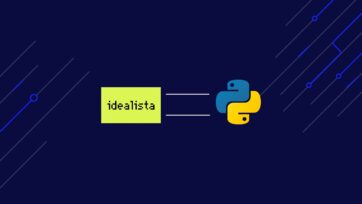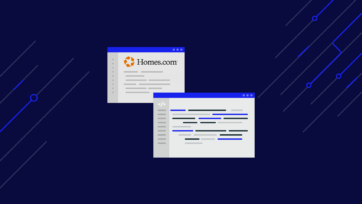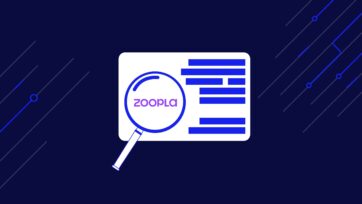When it comes to online business, the strongest indicator of success is growth. However you measure it, the rate at which new users are attracted to your product or service will most likely be the strongest indicator of your long term success. In fact, in many ways it’s the only metric you should be looking at – when you’re designing a business strategy for the long term, making sure every decision you make is informed by the potential growth you’ll see not only simplifies things but allows you to focus fully on the ideas that will offer you the best return on the time and money spent.
📊 New to web scraping? Download our beginner-friendly web scraping guide [PDF] and learn how to collect and use publicly available data.
This process can all too often get expensive, particularly if you’re using traditional marketing tactics like buying advertising or commissioning expensive email campaigns, so when resources are thin on the ground (or you just want to be as innovative as possible) then you’ll want to start thinking like a growth hacker – this means using every resource at your disposal, and web scraping is probably the most powerful and versatile tool in the box.
Growth hacking is marketing with a single purpose: to achieve the best growth in the shortest time possible. And with that goal in mind, almost anything is possible. A growth hacker will make it their goal to approach the user base of a business or product in new and innovative ways to boost user numbers as much as possible, and do it at the lowest cost possible. It’s about being efficient with your resources.
There are many famous examples of this in practice: AirBnB saw huge overnight growth by encouraging users to cross-post their listings on Craigslist. Without any budget whatsoever AirBnb had intimate access to Craigslist’s huge user base, many of whom became AirBnB customers directly. Paypal did something similar by partnering with eBay and having their logo displayed next to Visa and Mastercard. It encouraged confidence and users became more comfortable with the service, viewing it like a more traditional financial platform.
These are very simple tricks, but both of them brought huge growth – the cost of a traditional marketing campaign that would offer similar growth would be off the charts.
Unfortunately, like any other industry, once the cat is out of the bag you’ll quickly find that the trick that helped you make it big doesn’t work in the same way anymore. The moment your competition clue into what you’re doing they’ll adopt it in their own way, and what was once an exciting new marketing tactic turns into a normal industry technique.
A prominent example here would be the way Hotmail included a ‘get your free email’ footer in every email sent, turning every user email into an advert for the platform. To begin with this helped them achieve a million users in 6 months, but now it’s a completely normal sight to see ‘sent from my iPhone’ at the bottom of an email.
Ultimately the point here is that it is vitally important to stay ahead of the curve, and to keep thinking creatively about ways you can implement the growth hacking mindset in your product or your online presence. It’s a bit like making a viral video – to most of us it’s like catching lightning in a bottle, but to people who truly understand their audience it is something that can be engineered. And that’s where web scraping really comes into play. Truly successful growth hackers know that understanding how their potential users think is the first step in designing a bespoke marketing plan to attract their attention.
Social media is the first step – by scraping huge amounts of social media movements on platforms a growth hacker can get a strong sense of what their potential customers want. Then they can speak directly to that, or implement changes to the way in which their service is provided, in a way that helps the customer. It doesn’t have to just be about direct customer interaction too – one of the best ideas Youtube had was to allow their videos to be embedded anywhere.
By scraping social media data and parsing it properly, you would be able to get a sense of how your customers were interacting online and make changes to either your product or the way in which you deliver your product to encourage users to make sharing it a part of their regular online activity.
When it comes down to it though, not all businesses are scalable to that extent. The advantage that all of our examples have had is their appeal to a mass audience, and many businesses find great success online appealing to a very specific niche. The growth hacker mindset is still immensely important for staying relevant among a sea of competition, but for smaller scale businesses or individual service providers, growth hacking can simply mean being as efficient as you possibly can be in how you generate and follow up leads.
That’s essential for individuals but it’s also true for small teams as the less people you have on a project the more important rationing your time wisely becomes. For this purpose smart web scraping is your number one growth hacker tool.
Developing strong, reliable leads has always been a key feature of web scraping, and it’s as simple as understanding where your target audience is active online and scraping those sites for specific information. You can also use it to fine tune your SEO campaign, by scraping for popular keywords that you can adopt and build content around.
You can keep up to date with industry trends by aggregating news and industry blogs so you can ensure your product or service is at the cutting edge always – the options are endless. This is why the growth hacker mindset and web scraping go hand in hand, and it’s why so many successful growth hacking stories involve web scraping on some level – in both disciplines the only boundaries are your own innovation and imagination.
Hopefully this has given you some ideas to help your business grow. If you want to discuss projects like this or any other scraping job, please contact us and we’ll get back to you within 24 hours. Happy scraping!



